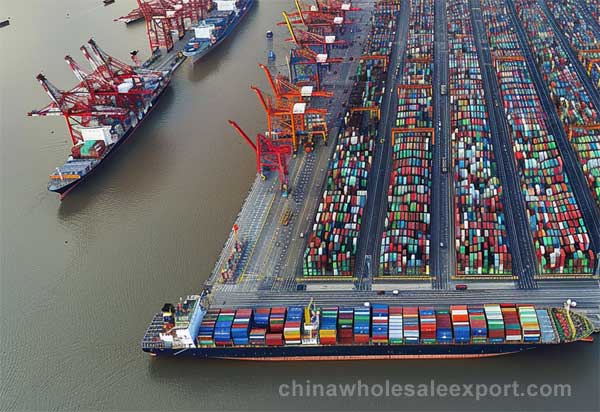FOB, CIF and CFR
In international trade, the terms of delivery are crucial for defining the responsibilities and risks of both the buyer and the seller. Incoterms, established by the International Chamber of Commerce (ICC), provide a standardized set of rules for these terms. Among the commonly used Incoterms are FOB (Free on Board), CIF (Cost, Insurance, and Freight), and CFR (Cost and Freight).

FOB: When the Goods Cross the Ship’s Rail
Under FOB terms, the seller’s responsibility ends once the goods have been loaded onto the buyer’s designated vessel at the specified port of shipment. This means that the buyer assumes all risks and expenses from that point forward, including any loss or damage to the goods during transit. In essence, the ownership and risk of the goods transfer to the buyer once they cross the ship’s rail.
Key Obligations under FOB:
- Seller’s Obligations: a. Deliver the goods to the buyer’s designated vessel at the specified port of shipment within the agreed-upon time or period. b. Obtain any necessary export licenses or other official approvals. c. Bear all costs and risks associated with the goods until they cross the ship’s rail. d. Provide customary documents evidencing the delivery of the goods onto the vessel.
- Buyer’s Obligations: a. Obtain any necessary import licenses or other official approvals. b. Arrange and pay for transportation, including notifying the seller of the vessel’s name, loading location, and requested delivery time. c. Assume all costs and risks associated with the goods after they cross the ship’s rail. d. Accept the documents provided by the seller, take possession of the goods, and pay the contract price as agreed.
CIF: Insurance and Freight Included
With CIF terms, the seller goes beyond FOB by providing insurance coverage for the goods during transit. The seller bears the cost of insurance and freight, covering the minimum amount of coverage required by the buyer. This additional protection shifts some of the risk from the buyer to the seller.
Key Aspects of CIF:
- Insurance: a. Insurance coverage is typically based on CIF value, which includes the cost of the goods, freight, and an insurance surcharge (usually 10%). b. The insurance covers loss or damage to the goods during transit from the port of shipment to the port of discharge.
- Freight: a. The seller is responsible for arranging and paying for freight from the port of shipment to the port of discharge. b. The buyer is responsible for any additional freight charges beyond the minimum agreed-upon amount.
CFR: Cost and Freight
Similar to CIF, CFR terms also include freight costs covered by the seller. However, unlike CIF, the seller does not provide insurance for the goods during transit. The buyer is responsible for obtaining and paying for insurance if desired.
Understanding the Differences:
| Feature | FOB | CIF | CFR |
|---|---|---|---|
| Seller’s Responsibilities | Deliver goods to vessel, bear costs until crossing ship’s rail | Deliver goods to vessel, bear costs and insurance until crossing ship’s rail | Deliver goods to vessel, bear costs until crossing ship’s rail |
| Buyer’s Responsibilities | Arrange and pay for transportation, bear risks after crossing ship’s rail | Arrange and pay for transportation, bear risks after crossing ship’s rail | Arrange and pay for transportation, obtain and pay for insurance if desired, bear risks after crossing ship’s rail |
| Insurance | Not included | Included | Not included |
Price Calculation Formulas:
The article provides various formulas for calculating prices under different Incoterms, including FOB, CIF, and CFR. These formulas involve factors such as freight, insurance, commissions, discounts, and tax rates. Understanding these formulas is essential for accurately determining the costs and profit margins associated with international trade transactions.
Case Study: The Importance of Understanding Incoterms
The article highlights the importance of thoroughly understanding Incoterms through a case study. It emphasizes that even under FOB terms, the seller may still face unexpected risks and costs if the goods are not properly insured or if the buyer fails to fulfill their obligations.
Conclusion:
FOB, CIF, and CFR are fundamental Incoterms that play a crucial role in international trade. By understanding the specific obligations and responsibilities of each term, businesses can effectively manage risks, allocate costs, and ensure smooth and successful transactions.


Leave a Reply